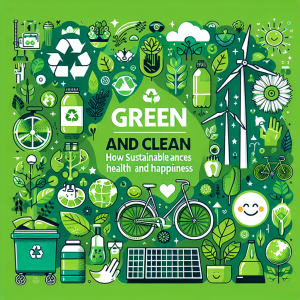The evolution of recycling programs over the decades is a fascinating journey reflecting society’s growing environmental consciousness and the development of sustainable practices. Beginning in the early 20th century, recycling primarily centered around efforts during wartime when resources were scarce. This historical context laid the foundation for how recycling would be perceived and utilized in the future.
During World War II, recycling became a patriotic duty in many countries, including the United States and the United Kingdom. Metal, paper, rubber, and other materials were collected en masse to support the war effort, establishing a culture of resource conservation. This period marked the first significant institutional push towards recycling, setting a precedent for future programs.
The post-war era saw a decline in recycling activities as economies grew, and consumerism rose. However, the 1960s marked a pivotal point as awareness about environmental conservation began to spread. The decade saw the publication of influential works such as Rachel Carson’s “Silent Spring,” which galvanized public awareness about environmental issues. This heightened consciousness paved the way for the first Earth Day in 1970, a landmark event that highlighted the urgent need for sustainable practices, including recycling.
In response, municipalities across North America and Europe began developing structured recycling programs. Initial efforts were modest, focused primarily on collecting paper and metal. However, they represented the building blocks of more comprehensive strategies. The late 1970s and early 1980s saw the establishment of curbside recycling programs in cities like Woodbury, New Jersey. These programs allowed residents to separate recyclable materials from their household waste, significantly increasing participation and efficiency.
The introduction of the universal recycling symbol in 1970, designed by Gary Anderson, played a crucial role in standardizing recycling efforts. This logo became an iconic representation of the movement, helping to communicate the importance and necessity of recycling to a broader audience.
During the 1980s and 1990s, the increase in plastic production highlighted the need to address this new environmental challenge. Public awareness campaigns emphasized reducing, reusing, and recycling to mitigate the impact of plastic waste. In this period, legislative frameworks such as the U.S. Resource Conservation and Recovery Act encouraged the development of more robust recycling systems by imposing stricter regulations on waste management practices.
Moreover, the introduction of deposit-return systems for beverage containers became widespread. These systems provided financial incentives for consumers to return bottles and cans, significantly improving recycling rates. Countries like Germany and Sweden pioneered these initiatives, which have since been adopted globally with considerable success.
As the new millennium unfolded, digital technology began to influence recycling programs. The rise of sophisticated sorting technologies, such as optical sorters, allowed recycling facilities to process materials more efficiently than ever before. These advancements enabled higher purity levels in recycled outputs, making it financially viable for industries to use recycled materials as raw inputs in production processes.
Additionally, the role of data analytics became prominent. Municipalities utilized data-driven insights to optimize recycling collection routes, track participation rates, and target community outreach efforts. This analytical approach facilitated more tailored public education efforts, addressing specific community behaviors to increase recycling engagement.
In recent years, the concept of a circular economy has gained traction. This paradigm shift emphasizes designing products with their entire lifecycle in mind, promoting the use of materials that can be reused, repaired, and recycled infinitely. Governments and companies worldwide are investing in research and partnerships to develop eco-friendly products and closed-loop recycling systems.
E-commerce and online platforms have also influenced contemporary recycling programs. Companies like TerraCycle offer solutions for hard-to-recycle waste streams, while initiatives such as e-waste recycling programs address the growing concern of electronic waste. Online marketplaces have emerged, allowing consumers to trade and recycle goods, further diversifying recycling avenues and promoting sustainable consumer habits.
International collaboration has also become a focal point in optimizing recycling programs. Agreements such as the Basel Convention regulate the transboundary movements of hazardous waste, promoting environmentally sound waste management. Countries are increasingly sharing best practices and technologies to improve global recycling efforts.
Challenges persist, including the need for standardized regulations across regions and the contamination of recyclable materials, which can hinder processing efficiency. However, innovations continue to emerge, with next-generation recycling methods, such as chemical recycling, holding promise for addressing these issues.
Through decades of innovation, community engagement, and policy development, recycling programs have evolved from simple initiatives to complex systems that play a critical role in environmental sustainability. As these programs continue to evolve, they remain a testament to society’s commitment to preserving the planet for future generations.


